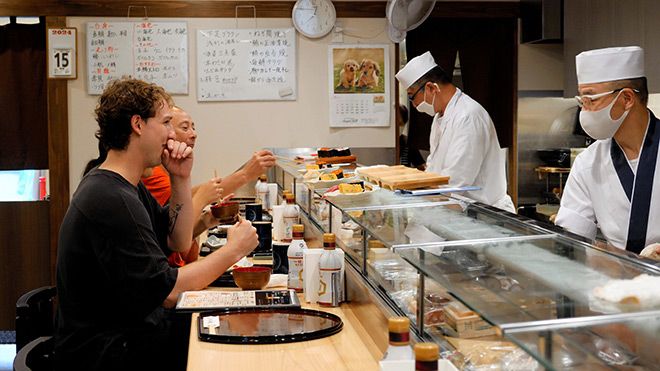Increased instances of tipping by the rising number of foreign tourists in Japan have caused confusion, sparked innovation and led to animosity among the locals.
More tourists are trying to offer tips for services at restaurants, perhaps unaware that this is not a common practice here.
One Japanese-style restaurant chain that operates more than 20 locations nationwide altered its operations after employees reported being offered tips by foreign customers and not knowing how to deal with the gesture.
The operator in February last year started installing “tip boxes” next to the cashier counters at nearly all of its locations.
According to the company, each outlet now collects several tens of thousands of yen in tips every month.
“In Japan, where there is no tipping culture, employees get confused. When the restaurant is busy, it’s difficult for staff to respond individually, so we placed the boxes as a solution,” a company official said.
The company records the collected tips as miscellaneous income, and the cash is used for employee benefits.
However, some customers who have seen the tip boxes harshly criticized the idea.
“We don’t want tipping culture introduced in Japan,” they fumed.
The tip boxes also became a topic of discussion on social media, with some people questioning, “Is the restaurant taking the money given for the staff?”
‘TIPS’ FOR TEA
According to Yoshiyuki Ishizaki, a professor at Ritsumeikan University’s Graduate School with expertise in tourism marketing, Japan used to have a custom similar to tipping before World War II.
Basically, guests at inns would give “money for tea” to staff members.
However, in pursuit of efficiency, the practice was replaced by fixed “service charges” around the time of the 1964 Tokyo Olympics.
Hotels adopted a 10-percent service charge, while ryokan traditional inns settled for 15 percent. Even today, some high-end restaurants impose a fixed service charge.
In the United States, where tipping is the norm, restaurants typically assign specific servers to each table. The tip provided at the end of the meal becomes the personal income of the server.
Since the size of the tip is based on the quality of service, proponents of the system say it helps to motivate employees.
Chibo, an “okonomiyaki” savory pancake chain, introduced a tipping system at its upscale locations in 1992 after expanding from western Japan. However, no customers used the system, and it was quickly abolished.
MOBILE EASE
To make tipping easier, Tokyo-based Dinii Inc., a provider of mobile ordering systems for restaurants, developed a program that allows customers to add tips on top of their bills, the first of its kind in the Japanese industry.
Dinii introduced the feature in June, allowing up to 25 percent of the bill to be added as a tip through the app. The system is available at around 900 restaurants or diners nationwide.
According to the company, the main users of this tipping function are believed to be foreign tourists, and its use is particularly high in tourist-heavy areas, like Tokyo’s Shinjuku and Osaka’s Namba districts.
Takashi Waki, the owner of Yakitori Smith, an Osaka-based restaurant chain specializing in grilled chicken skewers, is positive about the Dinii system.
“It makes our staff feel motivated and creates a lively atmosphere in our restaurants, which we really appreciate,” he said.
The tips are used for staff members’ gatherings, Waki said.
LOW WAGES, LABOR SHORTAGES
Professor Ishizaki said many restaurants frequented by foreign tourists have already reached a stage where they have no choice but to decide how to handle tipping.
Workers in the food service industry continue to struggle with low wages, while eateries suffer from labor shortages.
According to the labor ministry’s Basic Survey on Wage Structure for June last year, the average monthly salary in the accommodation and food services sector was 269,500 yen ($1,832), the lowest among all industries.
“In Western countries, services are considered something you pay for. In Japan, there is a psychological resistance to putting a price on hospitality, which is understandable,” Ishizaki said.
However, he said labor productivity will not improve if the country continues to think such services are free.
“Ideally, businesses should include service costs in their pricing and ensure profits are properly distributed to employees,” Ishizaki said.


AloJapan.com